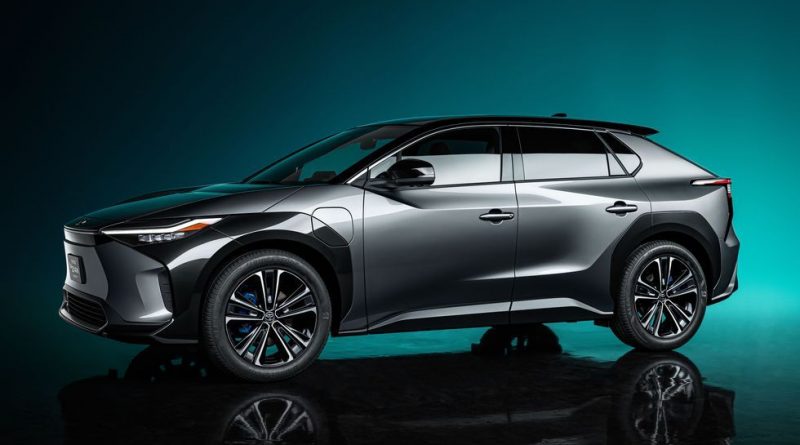Toyota Bets Big on New Battery Tech, but Leaves Plenty of Room for Hybrids
Despite being a hybrid pioneer with the Prius, Toyota hasn’t been as eager to embrace the world of EVs, only recently announcing moves to field electric vehicles in the coming years. But aside from a handful of periodic statements regarding a number of impeding models, the automaker hasn’t said much about longer-term plans for research and development, or what its lineup will look like by 2030.
Toyota Chief Technology Officer Masahiko Maeda shed some light on those longer-term aspirations earlier this week, just months ahead of the launch of its first new EV in the States.
For starters, Maeda indicated that the automaker is working on a new type of lithium-ion battery that will be introduced in the second half of the decade, which will be one of the three main types of batteries that Toyota plans to commercialize. The second type, of course, is a nickel-hydride battery for hybrids, while the third type—yet to arrive on the mass market—is a solid-state battery.
“In June last year, we built a vehicle equipped with all-solid-state batteries, conducted test runs on a test course, and obtained driving data,” Maeda said during a press conference with journalists.

“Based on that data, we continued to make improvements, and in August last year, we obtained license plate registration for vehicles equipped with all-solid-state batteries and conducted test drives,” he added.”
However, Maeda cautioned that one of the issues that Toyota has run into with solid-state development is short service life. This aspect runs contrary to Toyota’s goal of offering a long battery life in its electric vehicles, with Maeda adding that the automaker needs to continue development of solid electrolyte materials used in solid-state batteries. Toyota has been testing solid-state batteries in vehicles out in the real world for about a year.
In all, Toyota plans to invest $13.5 billion in battery development by 2030.
Maeda also indicated that Toyota is cognizant that vehicle battery demand will grow in the coming years, and that the automaker is planning to build a certain percentage of those battery packs by itself, instead of relying on suppliers.
“With the rapid expansion of electrified vehicles, we are working to build a flexible system that can stably supply the required volume of batteries at the required timing while meeting the needs of various customers in each region around the world,” Maeda told reporters.
“In pursuit of our battery development concept of achieving batteries that can be used with peace of mind, we will establish the needed technologies by conducting a certain amount of in-house production, and we will cooperate and collaborate with partners who understand and will put into practice our concept,” he added. “We will also proceed with discussions with new partners in some regions.”

Still, Toyota remains realistic about the demand for battery-electric vehicles across a variety of markets, and does not visualize a monolithic industry turn exclusively to BEVs in all markets in the coming years—and perhaps decades. The automaker continues to indicate that it sees a future for hybrids and internal combustion vehicles alike for quite some time, and in certain regions for bioethanol as a form of CO2 reduction, and it has remained agnostic on concrete targets regarding the share of EVs and hybrids by the end of the decade.
“At the moment, because we can provide HEVs at a comparatively affordable price, in places where the use of renewable energy is to become widespread going forward, electrification using HEVs [hybrid electric vehicles] is among the effective ways of reducing CO2 emissions,” Maeda said.
“On the other hand, Toyota believes that the increased use of zero-emissions vehicles, or ZEVs, such as BEVs, and fuel-cell electric vehicles, or FCEVs, is important in regions where renewable energy is abundant,” he added.
Still, Maeda reiterated Toyota’s goal of achieving carbon neutrality in 2050, with the automaker readying a full lineup of electrified, if not pure-electric, vehicles.
When it comes to seeing the first fruits of Toyota’s EV efforts, the bZ4X is headed stateside in a matter of months to kick off Toyota’s gradual embrace of battery-electric models. The RAV4-sized bZ4X, revealed in concept form earlier this year and due on sale in 2022, will be based on the e-TNGA platform that will underpin a number of battery-electric models. But overall, Toyota’s strategy still reflects a measured approach to EVs with a heavy emphasis on hybrids, cognizant of the fact that many individual countries are not seeing the EV adoption rates of western Europe or China.
